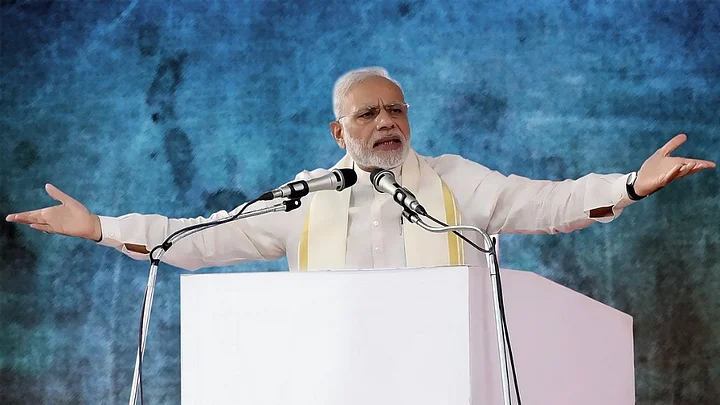Stunned by the 0-3 verdict in the Hindi heartland, many BJP supporters are hoping that Prime Minister Narendra Modi’s charisma will counter the anti-incumbency that led to the party’s defeat in Chhattisgarh, Madhya Pradesh and Rajasthan.
Some point to the slogan “Modi tujhse bair nahi, Vasundhara teri khair nahi” as a sign that voters were angry with state leaders rather than with the PM, and that this setback was one-off.
The National Element
This is somewhat optimistic. There was undeniably a national element to the state campaigns.
Many of the issues that afflicted the incumbent BJP governments were national – agricultural distress, demonetisation impact and GST.
Congress President Rahul Gandhi campaigned at length on the alleged failings of the Modi government, and Modi also spent a lot of time criticising the Congress party.
That said, issues and candidates do differ between state and national elections, so we can’t rule out the possibility of some voters in those states voting differently in the coming general election. However, history is not encouraging for the BJP, at least when it comes to Chhattisgarh, Madhya Pradesh and Rajasthan.
The Trends Over 15 Years
Consider the average swing for the winning and losing parties in these three states over the past 15 years.
The party that wins a state election on average gains 7-9 percentage points in the following general election. The party that loses also gains 1-2 points. The overall share of the vote going to smaller parties and independents usually shrinks between state and national elections, benefiting national parties.
If this pattern holds, the INC can expect to increase its lead over the BJP in these states in the coming general election. And even if there is a Modi effect on some voters, the state winner effect could neutralise it.
Some might argue that Modi is sui generis, and that his personal charisma will suffice to see the BJP through, especially in the Hindi belt. The historical record suggests otherwise. Consider 2013-14, when the INC was at a low point and dealing with serious anti-incumbency. In Chhattisgarh, Madhya Pradesh and Rajasthan, the party lost only 1-3 percentage points between the 2013 state election and the 2014 general election.
Possibilities for 2019
This means that very few INC voters in the state election switched to the BJP – or at least those losses were offset by incoming voters who had previously voted for other parties or independents. The INC lost such few votes at arguably its lowest point that it seems unlikely that it will slide when it is resurgent, and when the BJP faces anti-incumbency after five years in office.
The BJP could still jump ahead of the INC, as occurred early in the Atal Bihari Vajpayee era. The former won Madhya Pradesh (which included Chhattisgarh then) decisively in the February 1998 and September 1999 general elections, even though in between it had lost the November 1998 state election to the INC. Again, the INC held on to its vote share but the floating vote moved towards the BJP.
The problem is that the momentum is now going the other way. The BJP could, in theory, reverse its losses in the Hindi belt, but it won’t be easy.
(This piece was originally published in chunauti.org and has been republished with permission. Read the original story here.)
(Amitabh Dubey is a political analyst and can be reached @dubeyamitabh. This is an opinion piece and the views expressed above are the author’s own. The Quint neither endorses nor is responsible for them.)
